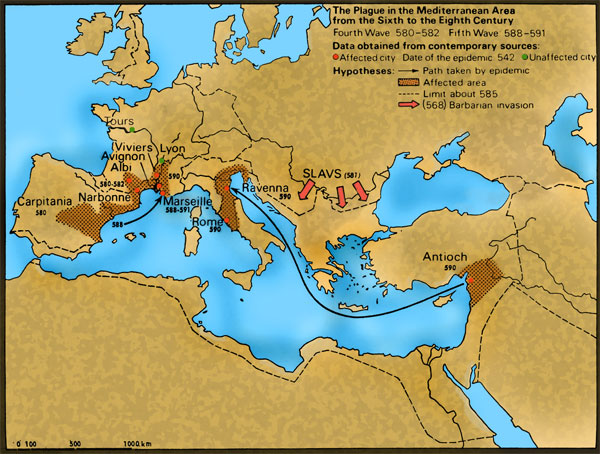Chapter 21
...It was told at the time [588] that Marseilles was suffering greatly
from the bubonic plague and that the disease had spread swiftly as far
as the village in the country of Lyons called Octavus.
But the king [Childebert II], like a good bishop, was for providing
remedies by which the wounds of the sinful people could be cured, and ordered
all to assemble at the church and engage devoutly in prayer.
He directed that nothing else than barley bread and clean water should
be taken in the way of food and that all without intermission should keep
watch....
...It was then commonly told among the faithful that a woman whose son
was suffering from a four-day fever and was lying in bed very ill, approached
the king's back in the throng of people and secretly broke off the fringe
of the royal garment and put it in water and gave it to her son to drink,
and at once the fever died down and he was cured.
I do not regard this as doubtful since I have myself heard persons possessed
by demons in their furies call on his name and admit their ill deeds, recognizing
his power.
Chapter 22
Since we have told above that the city of Marseilles was sick with a
deadly plague it seems suitable to give more details of what the city suffered....
... a ship from Spain put in at the port with its usual wares and unhappily
brought the seed of this disease.
And many citizens bought various merchandise from her, and one household
in which were eight souls was quickly left vacant, its inmates all dying
of this plague.
But the fire of the plague did not at once spread through all the houses,
but after a definite time like a fire in standing grain it swept the whole
city with the flame of disease....
The plague passed away in two months, and when the people, now reassured,
had returned to the city, the disease came on again and they who returned
perished.
Later on the city was many times attacked by this death. |


